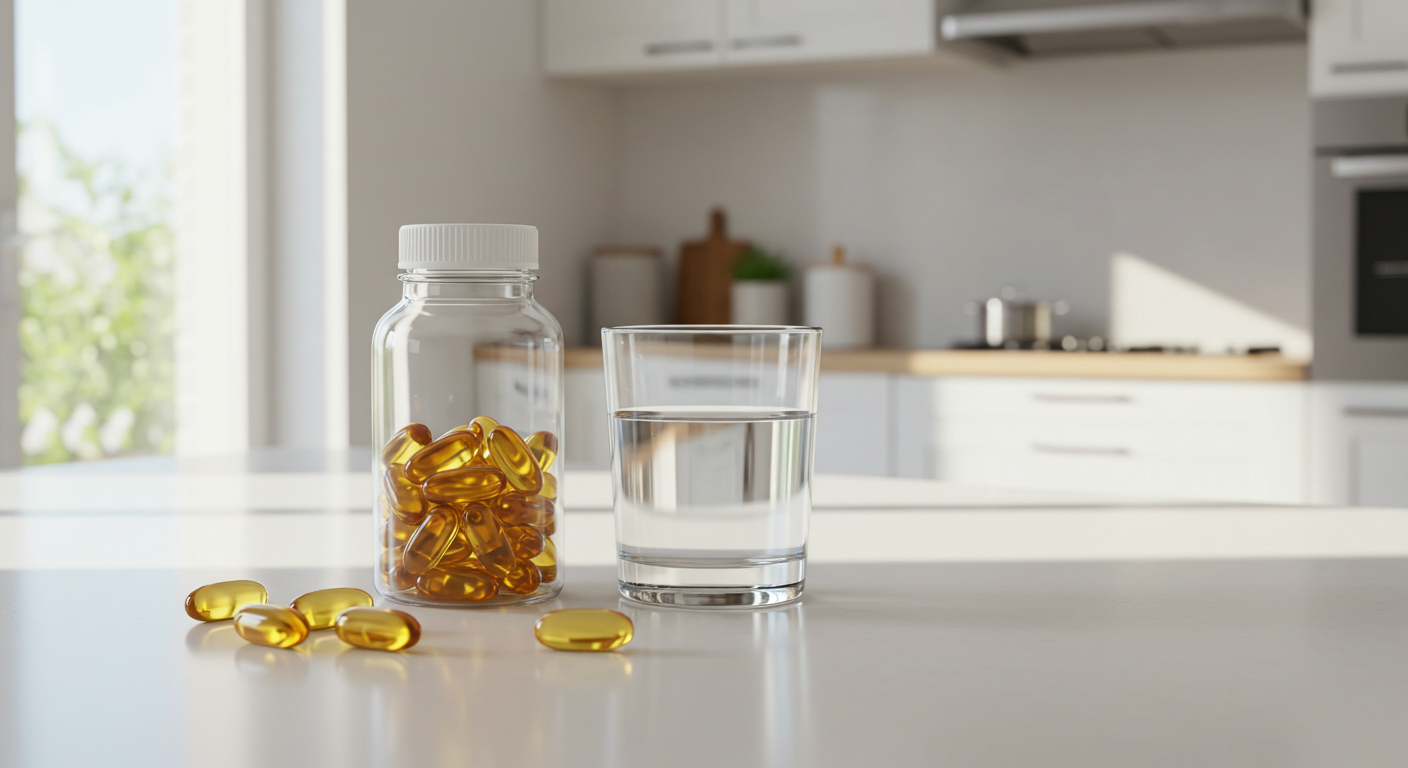Dr. Kumar’s Take:
A meta-analysis of 71 randomized controlled trials (RCTs) provides strong evidence that omega-3 polyunsaturated fatty acids (PUFAs) can lower blood pressure (BP). The study found that a combined daily intake of 2 to 3 grams of docosahexaenoic acid (DHA) and eicosapentaenoic acid (EPA) offers the most significant BP reductions. This is particularly beneficial for individuals with hypertension or hyperlipidemia, who may experience an even stronger response. If you’re looking to support heart health, optimizing your omega-3 intake could be a simple yet effective strategy.
Brief Summary:
A systematic review and dose-response meta-analysis examined the relationship between omega-3 PUFA intake and blood pressure regulation. The analysis included 4,973 participants across 71 RCTs. The findings revealed a J-shaped dose-response curve, indicating that moderate doses (2-3 g/day) of DHA and EPA are optimal for BP reduction. The study also highlighted stronger effects in populations with hypertension, hyperlipidemia, and individuals over 45 years old.
Key Takeaways:
✔ Optimal Omega-3 Intake: The greatest BP reductions were observed at 2 to 3 grams per day of combined DHA and EPA.
✔ Stronger Effects in High-Risk Populations: Individuals with hypertension or hyperlipidemia saw more pronounced benefits.
✔ Nonlinear Response: Higher doses (>3 g/day) did not provide additional BP-lowering benefits in normotensive individuals but may be beneficial for those at high cardiovascular risk.
✔ Diet vs. Supplementation: No significant differences were observed between omega-3 obtained from diet versus supplementation.
Study Design:
The meta-analysis included 71 RCTs published before May 2021, focusing on adults (≥18 years old) who consumed DHA and EPA through diet or supplementation. The studies had intervention durations of at least four weeks and were analyzed using a one-stage cubic spline regression model to establish the dose-response relationship.
Results:
✔ 2 g/day: Reduced systolic BP (SBP) by -2.61 mm Hg and diastolic BP (DBP) by -1.64 mm Hg.
✔ 3 g/day: Reduced SBP by -2.61 mm Hg and DBP by -1.80 mm Hg.
✔ Higher doses (>3 g/day): Limited additional benefits for normotensive individuals but continued improvements for hypertensive and hyperlipidemic groups.
✔ Hypertensive individuals: Experienced stronger BP reductions, with a more linear response to increasing omega-3 intake.
✔ Older adults (≥45 years): Showed greater BP-lowering effects compared to younger participants.
How Omega-3 Fatty Acids Lower Blood Pressure
Omega-3 fatty acids, particularly DHA and EPA, are known to influence cardiovascular health through multiple mechanisms:
- Vasodilation: Enhancing endothelial function and nitric oxide production to relax blood vessels.
- Anti-inflammatory effects: Reducing inflammation that contributes to vascular stiffness.
- Lowering heart rate and improving autonomic function: Contributing to overall cardiovascular benefits.
- Reducing triglycerides: Lowering lipid levels that may contribute to hypertension.
Related Studies and Research
- Omega-3 Fatty Acids and Mortality: A Meta-Analysis – Reviews a meta-analysis on how omega-3 consumption affects longevity and cardiovascular mortality.
- Omega-3 Fatty Acids and Type 2 Diabetes – Explores omega-3’s effects on insulin sensitivity and diabetes management.
- Omega-3 for Hypertriglyceridemia: AHA Review – Discusses AHA’s recommendations regarding omega-3 for lowering triglycerides.
- Cardiometabolic Effects of Omega-3 – Covers omega-3’s influence on metabolic health, including lipid profiles and inflammation.
Frequently Asked Questions
How much omega-3 should I take daily for blood pressure control?
The optimal intake for BP reduction appears to be 2 to 3 grams per day of combined DHA and EPA.
Can I get enough omega-3 from my diet?
Fatty fish like salmon, mackerel, and sardines are rich in omega-3s, but supplementation may be necessary for those who do not consume fish regularly.
Are there any risks associated with high omega-3 intake?
While generally safe, doses above 3 grams per day may increase the risk of bleeding or interact with certain medications, such as blood thinners. There is also an increased risk of atrial fibrillation with high doses of omega-3s.
Who benefits the most from omega-3 supplementation?
Individuals with hypertension, hyperlipidemia, or those over 45 years old tend to see the most significant BP-lowering effects.
Conclusion
This meta-analysis provides compelling evidence that omega-3 supplementation—at an optimal dose of 2 to 3 grams per day—can be an effective strategy for blood pressure control. For those at higher cardiovascular risk, slightly higher doses may provide additional benefits. Given the strong evidence supporting its role in heart health, omega-3 supplementation may be a valuable addition to a heart-healthy lifestyle.


